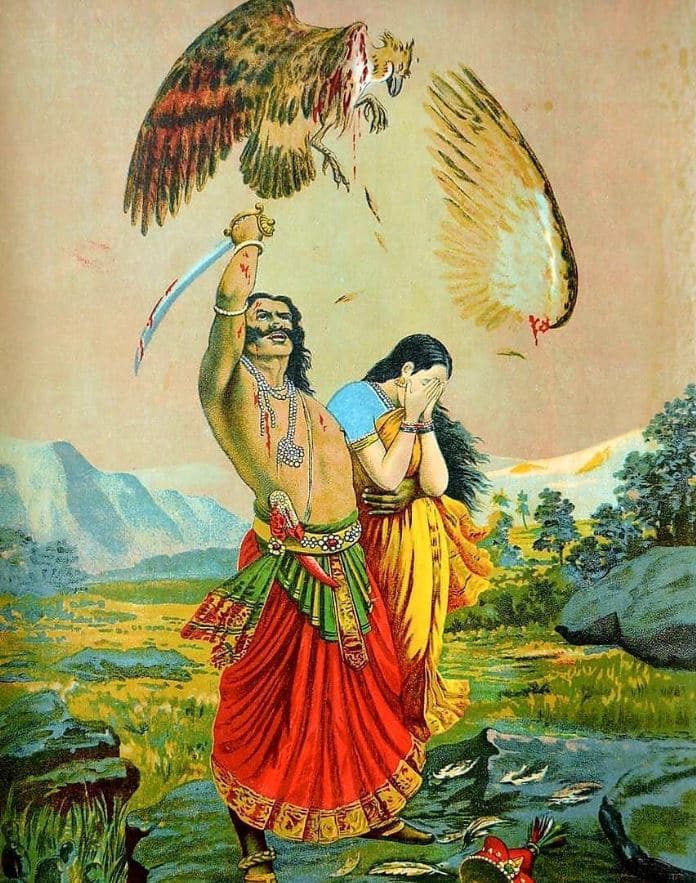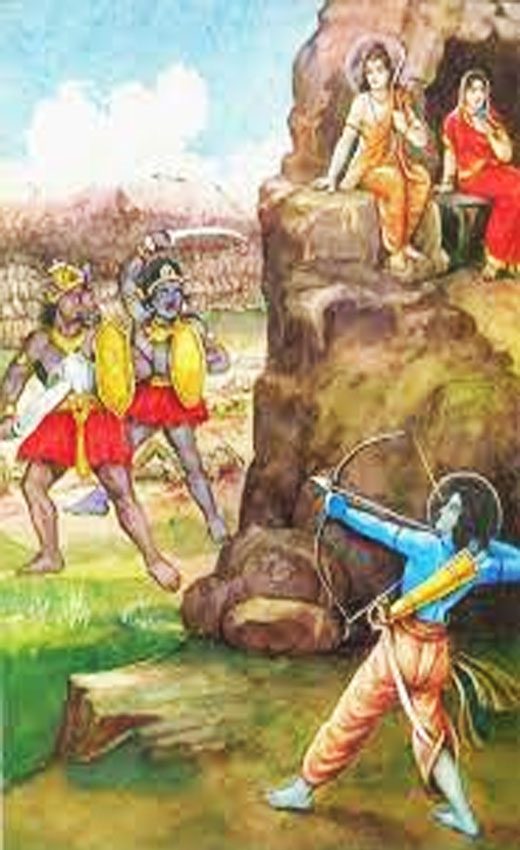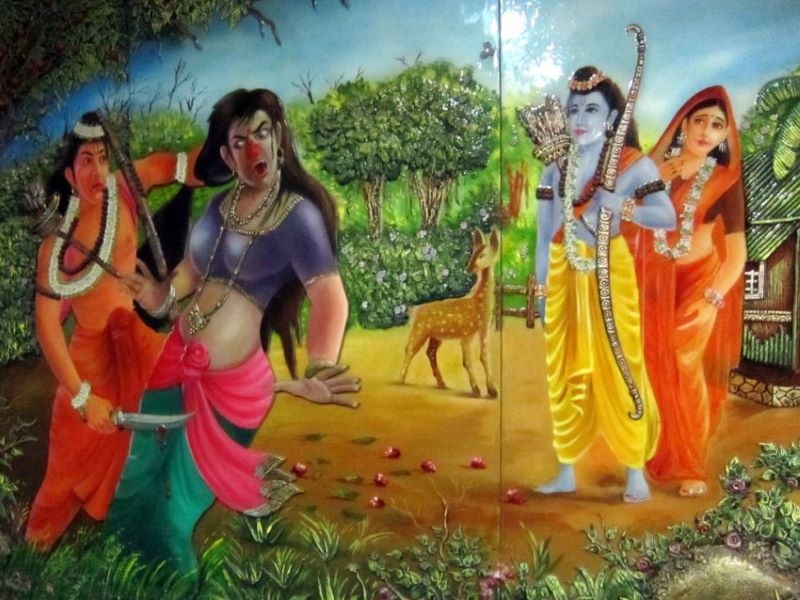जय श्रीराम!
पर्णशालामथ क्षिप्रं विकृष्टासिः प्रविश्य सः ।
वैरूप्यपौनरुक्त्येन भीषणां तामयोजयत् ॥ १२.४० ॥
Notes: Kālidāsa says, "Lakṣmaṇa, with his sword unsheathed, rushed into the hut and rendered the ugly and frightful Śūrpanakhā doubly so by disfiguring her (by slashing her ears, lips and nose)."
Rākṣasī Śūrpanakhā had brought extreme trouble. First, she attacked Śrīrāma and Lakṣmaṇa with her lust, but now with her violence towards Sītā. Lakṣmaṇa, with his sense of duty and presence of mind, taught her a lesson by damaging her nose, lips and ears with a sharp swish of his sword. The logic behind his act was to convey to the entire Rākṣasa clan that the trio should not be trifled with.
There is a saying in Sanskrit,
क्वचिद्रुष्टः क्वचित्तुष्टो रुष्टतुष्टः क्ष्णे क्षणे । अव्यवस्थितचित्तस्य प्रसादोऽपि भयङ्करः ॥
Translation: "Sometimes angry, sometimes cheerful, alternating in moods of anger and joy, a deranged mind cannot be trusted even if it confers grace."
This is exactly the description of Śūrpanakhā, who came coyly, announced her great antecedents, offered her love to Śrīrāma and Lakṣmaṇa shamelessly, but pounced on Sītā the next moment when she was spurned, triggering Sītā's natural amusement since Sītā knew what kind of character the two brothers had. Imagine if Śūrpanakhā had got a foothold in Śrīrāma's home!
This is not very different from the conduct of terrorists and invaders even today. A rapist and a homicidal lover act just like this.
***



















